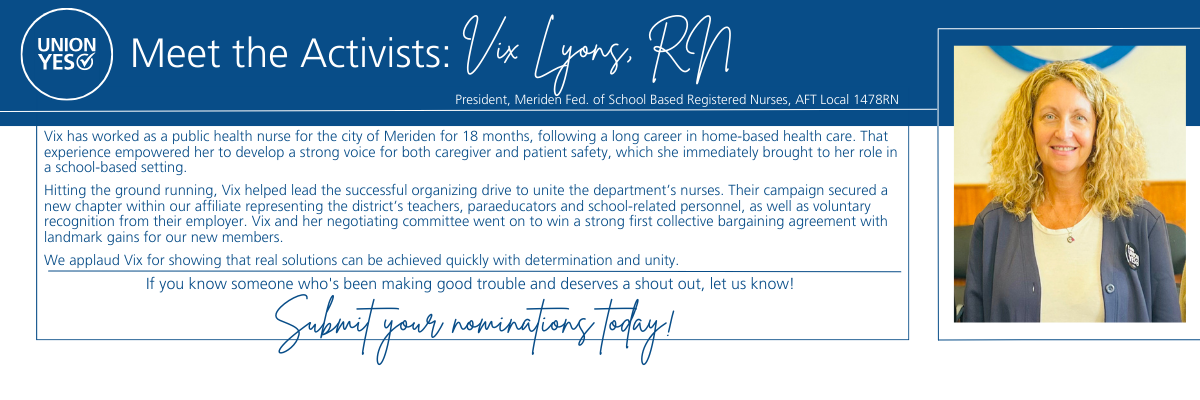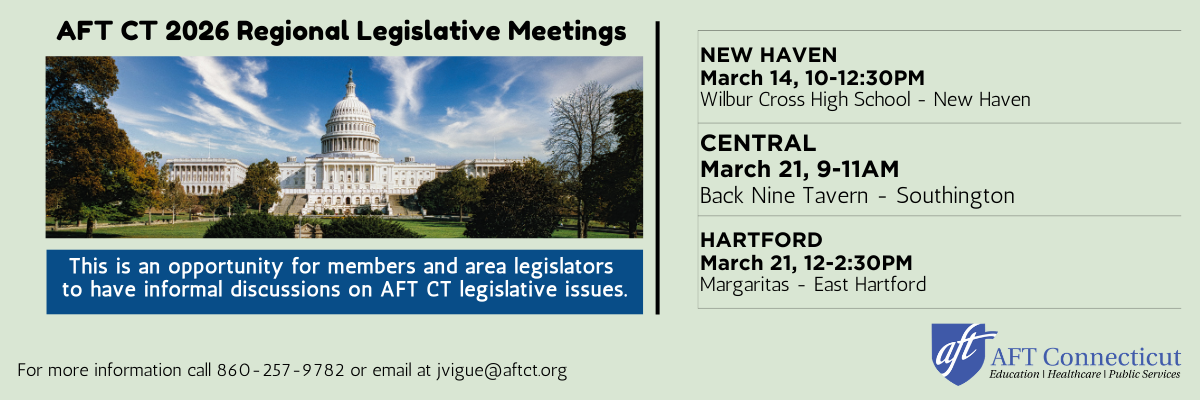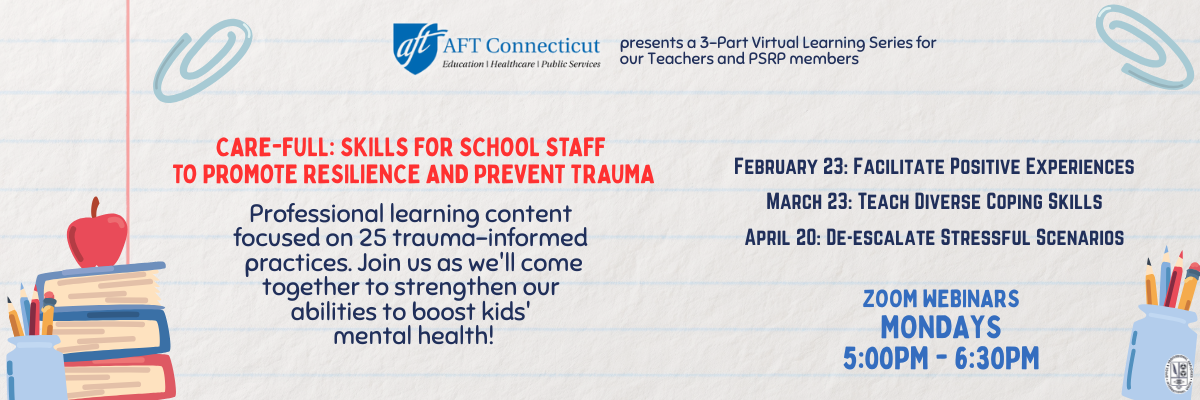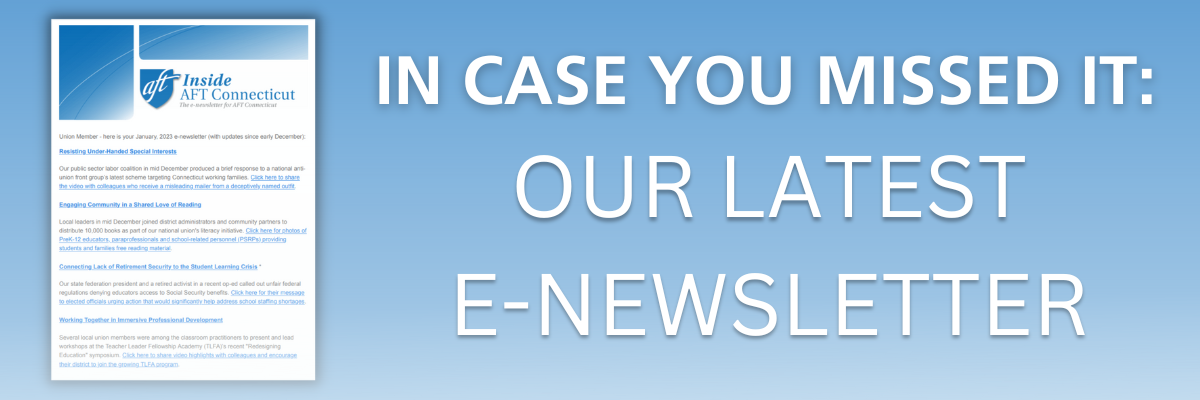













Feb '26 Meet the Activists Vix Lyons, RN (1200 × 400 px)
2026 AFT CT Regional Legislative Meetings WEBSITE GRAPHIC (1200 x 400 px)
CARE-FULL Skills for School Staff 2026 BANNER
2026 Awards Nominations Website
Scholarship Website Slider (2.4.2026 update)
VESI-Teacher-Prep-EduPD-Web-Slider
inside_aftct_web_slide_18.gif.crop_display



